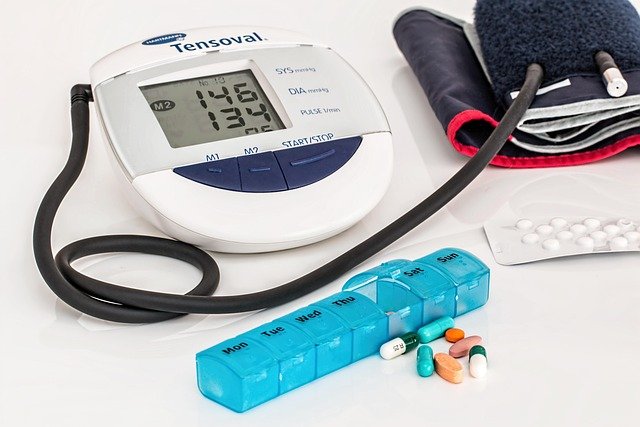Managing Chronic Kidney Disease: Signs, Symptoms, Causes, and Emerging Treatments
Chronic kidney disease affects millions of Americans, gradually reducing the kidneys' ability to filter waste and excess fluid from the blood. This progressive condition develops slowly over months or years, often without noticeable symptoms in its early stages. Understanding the warning signs, underlying causes, and available treatment options is crucial for managing this serious health condition. With proper medical care, lifestyle modifications, and emerging therapeutic approaches, many people with CKD can slow disease progression and maintain quality of life for years.

Understanding Chronic Kidney Disease (CKD)
Chronic kidney disease occurs when the kidneys become damaged and cannot filter blood as effectively as they should. Healthcare professionals classify CKD into five stages based on estimated glomerular filtration rate (eGFR), which measures how well the kidneys filter waste. Stage 1 represents mild kidney damage with normal or high filtration rates, while Stage 5 indicates kidney failure requiring dialysis or transplantation. The condition affects approximately 37 million adults in the United States, though many people remain unaware they have it until the disease reaches advanced stages.
Common Causes of Kidney Disease
Several underlying conditions contribute to chronic kidney disease development. Diabetes mellitus stands as the leading cause, accounting for nearly half of all CKD cases. High blood sugar levels damage blood vessels in the kidneys over time, reducing their filtering capacity. High blood pressure ranks as the second most common cause, creating excessive pressure that weakens kidney blood vessels. Other significant causes include polycystic kidney disease, glomerulonephritis, autoimmune disorders like lupus, and prolonged use of certain medications including nonsteroidal anti-inflammatory drugs. Family history, age over 60, and cardiovascular disease also increase CKD risk.
Early Signs and Symptoms of Chronic Kidney Disease
Recognizing early warning signs of chronic kidney disease can lead to timely intervention and better outcomes. Initial symptoms often include persistent fatigue, difficulty concentrating, poor appetite, and trouble sleeping. As kidney function declines, patients may experience swelling in feet and ankles, frequent urination especially at night, dry and itchy skin, and muscle cramps. Advanced stages present more severe symptoms such as nausea, vomiting, shortness of breath, and changes in urine color or foaming. Many people experience no symptoms during early stages, making regular screening essential for those at higher risk.
Traditional Treatment Options for CKD
Established treatment approaches focus on slowing disease progression and managing complications. Blood pressure control remains fundamental, typically using ACE inhibitors or ARBs (angiotensin receptor blockers) that also provide kidney protection. Diabetes management involves maintaining optimal blood sugar levels through medication, diet, and lifestyle changes. Healthcare providers may prescribe medications to manage anemia, bone disease, and mineral imbalances common in CKD patients. Dietary modifications include limiting protein, sodium, phosphorus, and potassium intake based on disease stage. Regular monitoring through blood tests and imaging helps track kidney function and adjust treatments accordingly.
New and Emerging Treatments for Chronic Kidney Disease
Recent medical advances offer promising new options for CKD management. SGLT2 inhibitors, originally developed for diabetes, show significant benefits in slowing kidney function decline even in non-diabetic patients. Finerenone, a newer mineralocorticoid receptor antagonist, reduces cardiovascular events and kidney disease progression. Researchers are investigating gene therapy approaches, regenerative medicine using stem cells, and artificial kidney devices. Clinical trials continue exploring novel medications targeting inflammation, fibrosis, and metabolic pathways involved in kidney damage. These emerging treatments represent hope for better outcomes and potentially reversing some kidney damage.
| Treatment Category | Provider/Option | Estimated Monthly Cost |
|---|---|---|
| Medication Management | Nephrologist Consultation | $300-500 |
| Dialysis Treatment | DaVita/Fresenius Centers | $6,000-8,000 |
| Kidney Transplant | Major Medical Centers | $400,000+ (one-time) |
| Dietary Counseling | Registered Dietitian | $100-200 |
Prices, rates, or cost estimates mentioned in this article are based on the latest available information but may change over time. Independent research is advised before making financial decisions.
Lifestyle Approaches for Managing CKD
Comprehensive lifestyle modifications play a crucial role in CKD management and can significantly impact disease progression. Regular physical activity, as approved by healthcare providers, helps control blood pressure and blood sugar while improving overall cardiovascular health. Smoking cessation is essential, as tobacco use accelerates kidney damage and increases cardiovascular risks. Maintaining a healthy weight reduces strain on the kidneys and helps manage underlying conditions like diabetes and hypertension. Adequate hydration is important, though fluid restrictions may be necessary in advanced stages. Stress management through relaxation techniques, meditation, or counseling can positively impact overall health outcomes.
Managing chronic kidney disease requires a comprehensive approach combining medical treatment, lifestyle modifications, and regular monitoring. Early detection and intervention remain crucial for preserving kidney function and preventing complications. While traditional treatments focus on slowing progression and managing symptoms, emerging therapies offer new hope for improved outcomes. Working closely with healthcare providers, following prescribed treatments, and maintaining healthy lifestyle habits can help people with CKD live fuller, longer lives. Regular screening for those at risk ensures timely diagnosis and treatment, ultimately leading to better long-term prognosis and quality of life.
This article is for informational purposes only and should not be considered medical advice. Please consult a qualified healthcare professional for personalized guidance and treatment.




